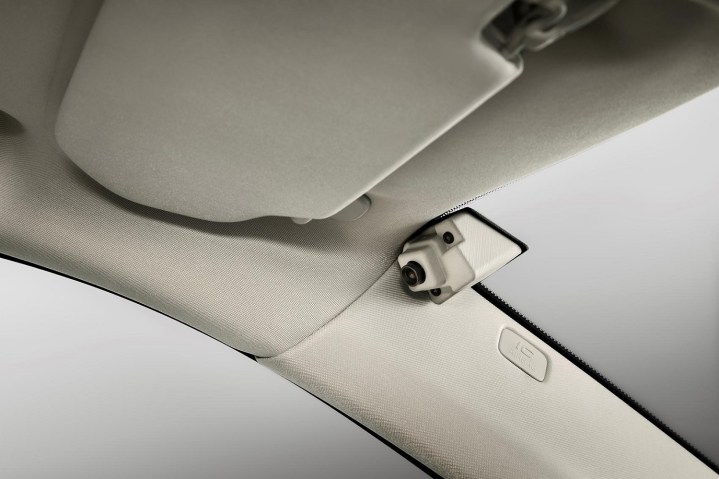
British magazine Car recently published a story claiming Volvo would give buyers the option of paying for a driver-facing in-car camera before the end of 2019. This technology sounds Big Brother-esque, and it’s indeed under development at Volvo’s headquarters, but it’s not right around the corner as the original report claims. Volvo contacted Digital Trends to clarify what its research and development department is and isn’t doing with cameras.
“[Volvo chief digital officer] Atif Rafiq was discussing what camera technologies potentially can do in terms of safety features such as attentiveness detection in the future, however Volvo Cars does not have any plans for driver facing cameras or related features this year,” Volvo spokesman Stefan Elfström told Digital Trends via email. He added that the in-car camera is only at the concept stage, and it may not appear on a regular-production car in the near future.
In the original report, Rafiq presented the camera as yet another feature Volvo can add to its cars to make them safer. The prototype camera he was referring to monitors the driver’s vital stats on a regular basis, and takes preventive measures if it detects something is wrong.
“[Driver-facing cameras] are very advanced these days: they can determine a driver’s glucose levels by looking at their pupils, so [it] could call a loved one or hospital if it detected a health problem. Cars will understand your state and de-stress you on your way back from work,” explained Rafiq in an interview with British magazine Car.
Rafiq pointed out the camera could also let Volvo add facial recognition technology to its cars, from the smaller 40-series to the flagship 90-series models. “Your car will recognize you and set your Google apps, climate control, and seating position for you. It’s very clever,” he noted.
Aiming a camera at the driver’s face creates obvious privacy concerns. Volvo has tested this technology for years, and it predicts drivers will ultimately learn to trust the camera if it ever appears on a production model. They’ll accept it as another part of the technological latticework that powers the connected devices in their lives. Rafiq stressed the footage gathered by the camera would be anonymous, and Volvo wouldn’t share it with anyone else (such as law enforcement officials and insurance companies). What the company would do with it and which type of data it would gather from it are open questions at this point.
Car magazine reported the driver-facing camera will join Volvo’s list of options before the end of 2019. Volvo told us that’s not accurate, and it doesn’t know when (or if) the technology will merge into the mainstream.
Updated 1-3-2019: Added statement from Volvo.



